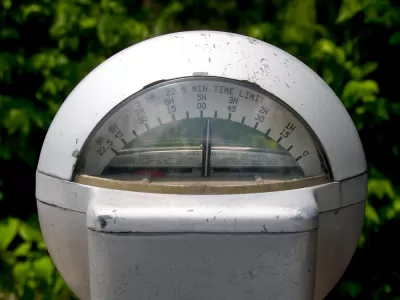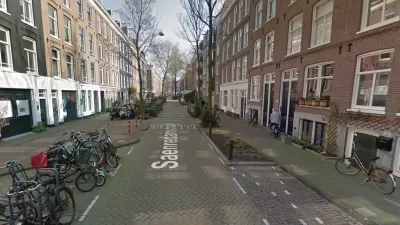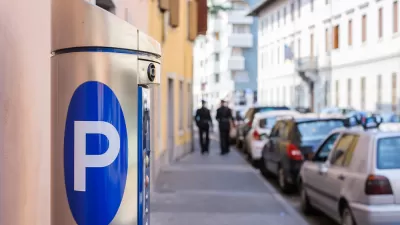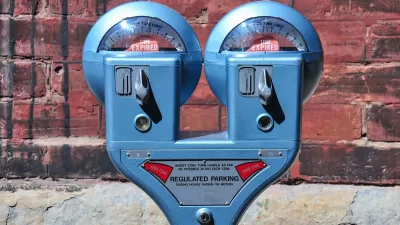This report explores strategies for efficient and equitable parking management with an emphasis on pricing. These strategies enable cities to reallocate space for bus lanes, bicycle lanes, wider sidewalks, and pickup zones, and generate revenue.

Rapid motorization has been a global trend in recent decades and has presented troubling consequences, such as air and noise pollution, traffic-related injuries and deaths, and inequity. As vehicle use increases, so does demand for storing vehicles, both for short-term stays on the street near drivers’ destinations and longer-term stays in off-street lots and garages. Managing and pricing parking is therefore critical to ensure equitable use of public space among high-volume, low-polluting transport modes like public transport, cycling, and walking.
This report explores strategies for efficient and equitable parking management with an emphasis on pricing. Employing these strategies will enable cities to reallocate space for bus lanes, bicycle lanes, wider sidewalks, and flexible pickup zones, and the revenue from pricing parking can help fund these improvements. High-quality public transport, cycling, and walking infrastructure benefits users of these modes as well as drivers by reducing congestion as demand shifts away from driving.
Cities that take action to address long-standing parking management issues may now be able to shift some of the increased demand for vehicles expected in the aftermath of the pandemic to other modes.
High-quality public transport, cycling, and walking infrastructure benefits users of these modes as well as drivers by reducing congestion as demand shifts away from driving.
More efficient parking management and pricing enables cities to prioritize valuable urban space for people and local businesses instead of cars, resulting in more efficient, equitable, healthy communities.
FULL STORY: On-Street Parking Pricing: A Guide To Management, Enforcement, And Evaluation

Alabama: Trump Terminates Settlements for Black Communities Harmed By Raw Sewage
Trump deemed the landmark civil rights agreement “illegal DEI and environmental justice policy.”

Study: Maui’s Plan to Convert Vacation Rentals to Long-Term Housing Could Cause Nearly $1 Billion Economic Loss
The plan would reduce visitor accommodation by 25% resulting in 1,900 jobs lost.

Why Should We Subsidize Public Transportation?
Many public transit agencies face financial stress due to rising costs, declining fare revenue, and declining subsidies. Transit advocates must provide a strong business case for increasing public transit funding.

Paris Bike Boom Leads to Steep Drop in Air Pollution
The French city’s air quality has improved dramatically in the past 20 years, coinciding with a growth in cycling.

Why Housing Costs More to Build in California Than in Texas
Hard costs like labor and materials combined with ‘soft’ costs such as permitting make building in the San Francisco Bay Area almost three times as costly as in Texas cities.

San Diego County Sees a Rise in Urban Coyotes
San Diego County experiences a rise in urban coyotes, as sightings become prevalent throughout its urban neighbourhoods and surrounding areas.
Urban Design for Planners 1: Software Tools
This six-course series explores essential urban design concepts using open source software and equips planners with the tools they need to participate fully in the urban design process.
Planning for Universal Design
Learn the tools for implementing Universal Design in planning regulations.
Smith Gee Studio
Alamo Area Metropolitan Planning Organization
City of Santa Clarita
Institute for Housing and Urban Development Studies (IHS)
City of Grandview
Harvard GSD Executive Education
Toledo-Lucas County Plan Commissions
Salt Lake City
NYU Wagner Graduate School of Public Service





























